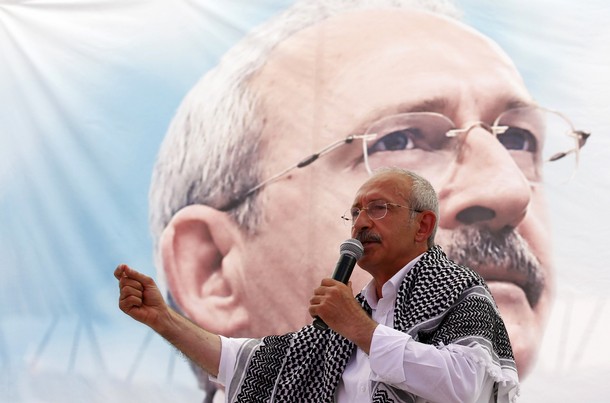
From Katinka Barysch, the International Herald Tribune: Polls have left little doubt that the AKP will win its third consecutive election in June as voters reward Prime Minister Recep Tayyip Erdogan for presiding over years of economic growth , relative political stability and Turkey’s growing international stature.
But Erdogan wants not only to stay in government, he wants to gain enough seats in the Parliament to push through a new constitution without having to compromise with the opposition. Since the AKP’s share of the vote stands at around 43-45 percent, Erdogan can hope for a supermajority only if the smaller of the two main opposition parties, the rightist Nationalist Movement Party (MHP) fails to pass the 10 percent bar for entry to the Parliament. . . .
Turkey does need a new, more democratic constitution. But if the AKP gains 330 of the 550 seats, it will be able to push through a constitutional draft without support from the opposition and put it straight to a referendum. (If the AKP gained 367 seats, it could even to adopt the constitution in a parliamentary vote.) A “one-party” constitution would lead to further divisions in Turkey’s already-polarized political system. The opposition parties, together representing half of Turkey’s electorate, might well boycott a constitutional process dominated by the AKP.
Even among AKP supporters there might not be much debate: Erdogan has single-handedly struck 220 of the current 334 AKP MPs off the candidates’ list and replaced them with little-known loyalists. In a party that was once proud of its local roots, the top-down sweep has left many members cross.
Katinka Barysch is deputy director of the Centre for European Reform in London. (photo: Reuters)
Image: reuters%206%203%2011%20Kemal%20Kilicdaroglu.jpg
